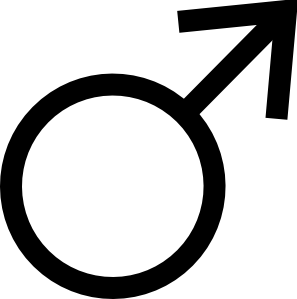* Or any pregnant person whose gender identity you are not
absolutely 100% certain about, so really, ANY pregnant person.
I came out as a
transgender guy and transitioned by changing my legal name, taking
testosterone, and having top surgery. Friends and colleagues were generally
awesome with that, and highly supportive. Virtually everyone I knew used male
pronouns for me as I asked them to, and many made special efforts to help me
feel accepted.
A few years later, I
stopped taking testosterone and became pregnant, and my allies’ world was
turned upside down. These are real questions that real people asked me. Let me
explain why they are damaging, and what would be better.
1.
Have you had surgery “down there”?
This one is a sign that somebody hasn’t thought things through,
and I think it comes from the assumption that all transgender people want to
transition “all the way.” Transition for a female-to-male individual must
involve hysterectomy, right? Wrong! We transition in a variety of ways, to
whatever degree makes us comfortable (or that we can afford). For some trans
people, transition is not linear, either. You really don’t need to know whether
your pregnant trans friend has had or desires any other kind of bottom surgery,
such as clitoral release, urethral lengthening, or phalloplasty. Read about
those procedures by Googling to your heart’s content.
2.
Are you going to keep the baby?
The person asking wants to know if the pregnancy was planned. Just
like the rest of the population, some transgender people who become pregnant
didn’t intend to have babies, but that’s not the case for all of us. The
unpleasant implication behind the question is that a transgender person
shouldn’t want to have (or shouldn’t have) a baby. A much better question would
be “How are you feeling?” Your pregnant trans friend will disclose as much as
they are comfortable with and might indicate how you can help.
3.
How do you know this is safe?
A lot of people assumed that because I had a beard and a low
voice, I was still taking testosterone despite being pregnant. People asked me
this as though I had never considered the issue before. To me, the question
suggested that I was ignorant or didn’t care about my baby, or both. Even health
care providers asked repeatedly if I was taking testosterone, seemingly not
believing my answer.
Before trying to get pregnant, I talked to my endocrinologist
(hormone doctor) and family doctor about any risks they could foresee. My
endocrinologist advised me to stop taking testosterone and wait until my
menstrual cycles became regular. He said that, in the form I was taking it,
testosterone leaves the tissues quite quickly, typically within about ten days.
He told me that my eggs should not be affected by my previous testosterone use.
My family doctor just shrugged and reminded me to take folic acid!
If you have a transgender friend or acquaintance who is pregnant,
you don’t need to ask this. If you’re a health care provider, knowing whether
or not your patient is still taking testosterone is important. You also need to
realize that for some of us at least, a beard doesn’t disappear when
testosterone use is halted.
4.
Did you enjoy the process of making your baby?
This is just another way of asking a transgender person how they
have sex. It’s weird and awkward. And for folks who don’t have simple access to
sperm in their relationship, conceiving a baby might be separate from making
love anyway.
5.
But what about breastfeeding?
I think breastfeeding is awesome, and I have been breastfeeding
my kids for five years straight – but having a baby doesn’t hinge on it. I was
asked about breastfeeding when I was pregnant, as if not being able to breastfeed
should make me reconsider my pregnancy. The question itself put an immense
amount of pressure on me. It turned out that I am able to make a small amount
of milk despite having had chest surgery, and I deeply value my breastfeeding
relationship with my child. However, lots of people, transgender or not, choose
not to breastfeed, and that is their choice.
For friends and health care providers alike, a more open-ended
question would be better, such as “how do you plan to feed your baby?” If you
are lactating and interested in helping, you could ask if your transgender
friend might wish to accept donated milk.
6.
Do you know the baby’s gender?
During my pregnancies, people asked me this obsessively. I always
thought to myself, do you know who you’re asking? Identifying a baby as male or
female based on its genitalia has to do with its sex, not its gender.
Furthermore, I never cared during my pregnancies about what my babies’ genitals
might look like. I wondered if they would be healthy, happy, sleepy, curious,
affectionate, serious, light-hearted, optimistic or any number of other
characteristics before I thought about whether they had a penis or vulva. A
better question to ask would be whether your friend has felt their baby move
yet or heard the heartbeat – both are indescribably beautiful and intimate ways
to connect with the being growing inside the belly.
Finally, I want to mention that a few friends have come out to me
as transgender or genderqueer during or after their pregnancies. Friends, family,
and health care providers interacting with a pregnant person might be unaware
of that person’s gender identity. Be careful about the assumptions contained in
your questions no matter who you’re talking to.

